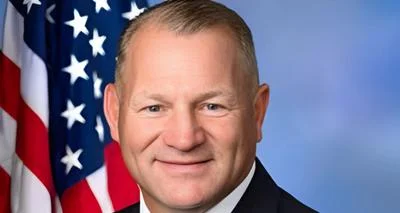Congresswoman Betty McCollum (D-MN), Chair of the Defense Subcommittee, delivered the following remarks at the subcommittee's hearing on Defense Environmental Restoration:
This afternoon the Committee will receive testimony on the Defense Environmental Restoration Program and accounts.
Our four witnesses are:
- Mr. Richard Kidd, Deputy Assistant Secretary of Defense for Environment and Energy Resilience;
- Ms. Amy Borman, Deputy Assistant Secretary of the Navy for Environment;
- Mr. Karnig Ohannessian, [“Oh-hen-NESS-ee-uhn”] Deputy Assistant Secretary of the Navy for Environment; and
- Ms. Nancy Balkus, Deputy Assistant Secretary of the Air Force for Environment, Safety and Infrastructure
This is the second time this Subcommittee has held a hearing on environmental restoration and remediation issues within the Department of Defense. I note that our first hearing on this issue was exactly one year ago today.
It is critically important that this subcommittee remain engaged because environmental cleanup is directly relevant to every single state in our nation and in many of the Congressional Districts that we represent.
The impacts of environmental contamination in our communities - whether it be from hazardous chemicals or military munitions - are not partisan issues.
This is about the health and the safety of our service members, their families, and our constituents who live in and around military installations.
And it is the duty of the Department of Defense and the Services to ensure they are responsible stewards of the land on which they operate.
Where contamination has occurred, the Department and the Services must ensure that those sites are responsibly cleaned up in a timely fashion to standards that meet the needs of the local communities.
It is our job in Congress to ensure there is adequate funding and proper oversight of these cleanup projects.
One of my hopes for this hearing is for us to discuss how we can collectively be smarter and accelerate site cleanup.
While the answer can sometimes be more money, the President’s budget routinely proposes to reduce cleanup funding, and Congress is left to restore the funding.
And cleanup of hazardous sites and military munitions should not be used as a budget offset. It needs to be a serious priority for the Department, and not a second or third tier issue.
Some of the topics for today’s hearing that I hope we can hear more about include:
How funding is prioritized in the Environment Restoration accounts.
The cost to complete cleanup DoD-caused contamination and military munitions at current and former military facilities and what constraints exist to speeding along cleanup.
In places where the Department is the known source of contamination - how is the Department communicating the risks to servicemembers, their families, and the neighboring communities; and ensuring those affected are aware and heard.
The scope of DoD PFAS cleanup – where is the Department in identifying possible PFAS contamination at DoD installations and how far along in the CERCLA process are the Services in remediating PFAS contamination.
Given the tight timeframe we will have to write the bill, I ask that you be prepared to respond to members on any specific budget questions that are asked today.
With that, I thank you again for appearing before the Committee today to discuss these important issues.
Original source can be found here.








